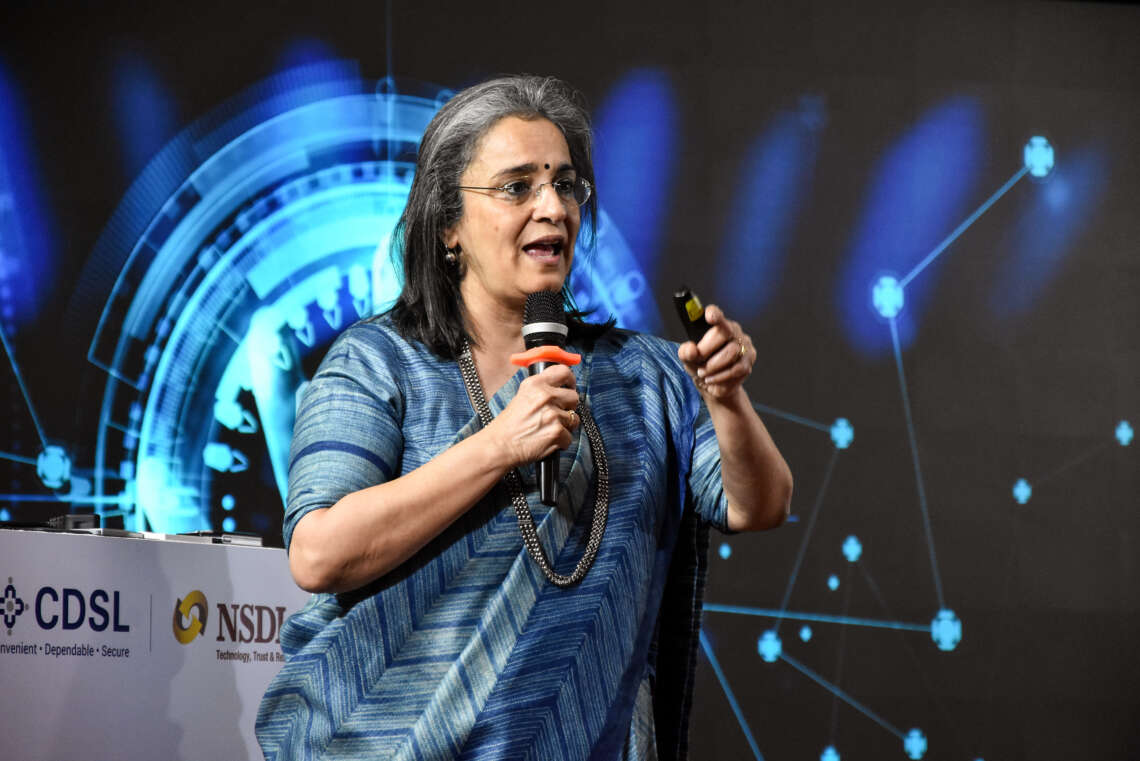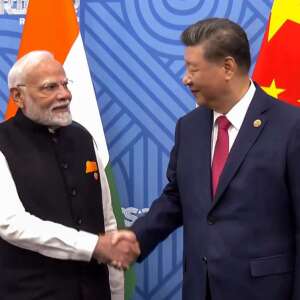The anti-corruption ombudsman ruled that the complaints lacked credible evidence and were based largely on assumptions, speculation, and unverifiable claims.
The Lokpal of India has dismissed all complaints against former Securities and Exchange Board of India (SEBI) Chairperson Madhabi Puri Buch, giving her a clean chit in a case arising from allegations made in the second Hindenburg Research report. The anti-corruption ombudsman ruled that the complaints lacked credible evidence and were based largely on assumptions, speculation, and unverifiable claims.
In an order dated May 28, a bench headed by retired Supreme Court Justice A.M. Khanwilkar held that none of the accusations warranted an investigation under the Prevention of Corruption Act. The order called the complaints “untenable, unsubstantiated, and bordering on frivolity,” asserting that they appeared to be politically motivated attempts to sensationalise regulatory actions involving SEBI and the Adani Group.
“We have concluded that the allegations in the Complaint(s) are more on presumptions and assumptions and not supported by any verifiable material… accordingly, these complaints are disposed of,” the order stated.
Five primary allegations were examined, including claims of quid pro quo transactions disguised as consultancy fees from companies such as Mahindra & Mahindra and Blackstone, rental income from Wockhardt, and improper gains from the sale of ICICI Bank ESOPs. The Lokpal found no material evidence to support these charges. Further, accusations that Buch failed to properly recuse herself from regulatory matters related to certain firms were also rejected as baseless.
The Lokpal sharply criticised the complainants for attempting to draw the authority into a “roving inquiry” and warned that such vexatious filings risk trivialising its role. “The complainants have inevitably trivialised the process before the Lokpal… It is nothing short of vexatious proceedings actionable under Section 46 of the Lokpal and Lokayuktas Act, 2013,” the order noted.
The controversy began in August 2024, when US short-seller Hindenburg Research released a report suggesting regulatory improprieties involving SEBI under Buch’s leadership, especially in relation to the Adani Group. The report followed SEBI’s issuance of a show-cause notice to Hindenburg the previous month — a move seen by some as a trigger for the retaliatory allegations.
In response to the Hindenburg report, Madhabi Puri Buch and her husband Dhaval Buch issued a joint statement categorically denying all charges. “Our life and finances are an open book. All disclosures as required have already been furnished to SEBI over the years. We have no hesitation in disclosing any and all financial documents… to any and every authority that may seek them,” the statement read.
Wednesday’s order echoed the couple’s defence, observing that their financial dealings were transparent and unconnected to the Adani Group or any other alleged beneficiary. It clarified that both Buch and her husband were passive investors with no influence over the entities under scrutiny.
The Lokpal also took aim at the Hindenburg report itself, calling it unreliable and partisan. “The complaint(s)… were essentially founded on the Hindenburg Report… that report by itself cannot be made the sole basis to escalate action against the RPS (Respondent Public Servant),” the order stated.
A spokesperson for the Adani Group welcomed the verdict, saying it “completely exonerates” the company and vindicates the regulatory process. “The effectiveness of SEBI’s investigations has already been commended by the Supreme Court. This order only reinforces confidence in India’s regulatory and judicial institutions,” the spokesperson added.
Buch, who served as SEBI’s first woman chairperson, oversaw several high-profile cases, including investigations into offshore transactions involving major corporate houses. Her tenure, however, also drew political scrutiny and calls for transparency amid heightened global attention on India’s financial markets.
The Lokpal’s order now establishes a significant precedent in defending institutional processes against media-led trials and unverified foreign reports. “By reiterating SEBI’s institutional integrity and rejecting conflict of interest charges, the order sends a strong signal that India’s capital markets are robustly governed,” a senior government official said.

IndusInd hit by insider trading probe
The Securities and Exchange Board of India (SEBI) has issued an interim order barring five senior current and former executives of IndusInd Bank from trading in securities, citing insider trading charges. The regulator alleges that the officials sold shares based on unpublished price-sensitive information (UPSI), collectively avoiding losses of nearly ₹19.78 crore.
The officials named in SEBI’s ex-parte order dated May 28 include Arun Khurana, Executive Director and Deputy CEO; Sumant Kathpalia, Managing Director & CEO; Sushant Sourav, Head of Treasury Operations; Rohan Jathanna, Head of GMG Operations; and Anil Marco Rao, Chief Administrative Officer, Consumer Banking. Some of them have since resigned.
SEBI’s probe began following a sharp fall in IndusInd Bank’s stock after the bank disclosed on March 10, 2025, a significant discrepancy in its derivatives portfolio. This discrepancy resulted from new accounting changes mandated by the Reserve Bank of India in September 2023.
Internal emails revealed the bank’s employees identified discrepancies amounting to ₹1,572 crore by September 2023, rising to ₹2,361.69 crore by March 2024. These figures were communicated to top executives by December 2023, but the public disclosure was delayed until March 2025.
During this period of undisclosed negative information, the accused officials sold large volumes of IndusInd Bank shares but did not buy any, suggesting deliberate attempts to avoid losses before the stock price plunged. The day after the disclosure, the share price dropped over 27%, from ₹900.60 to ₹655.95.
Arun Khurana sold 3.48 lakh shares, avoiding losses over ₹14.39 crore, while Kathpalia sold 1.25 lakh shares to evade over ₹5.2 crore in losses. The remaining three officials avoided nearly ₹19 lakh in losses collectively.
SEBI has frozen the officials’ bank accounts up to the value of avoided losses and directed them to deposit these amounts in fixed deposits with liens in favour of SEBI. They have also been prohibited from trading in securities until further notice. The regulator has asked for disclosure of their assets within 15 days, and the investigation is ongoing with further penalties possible.














